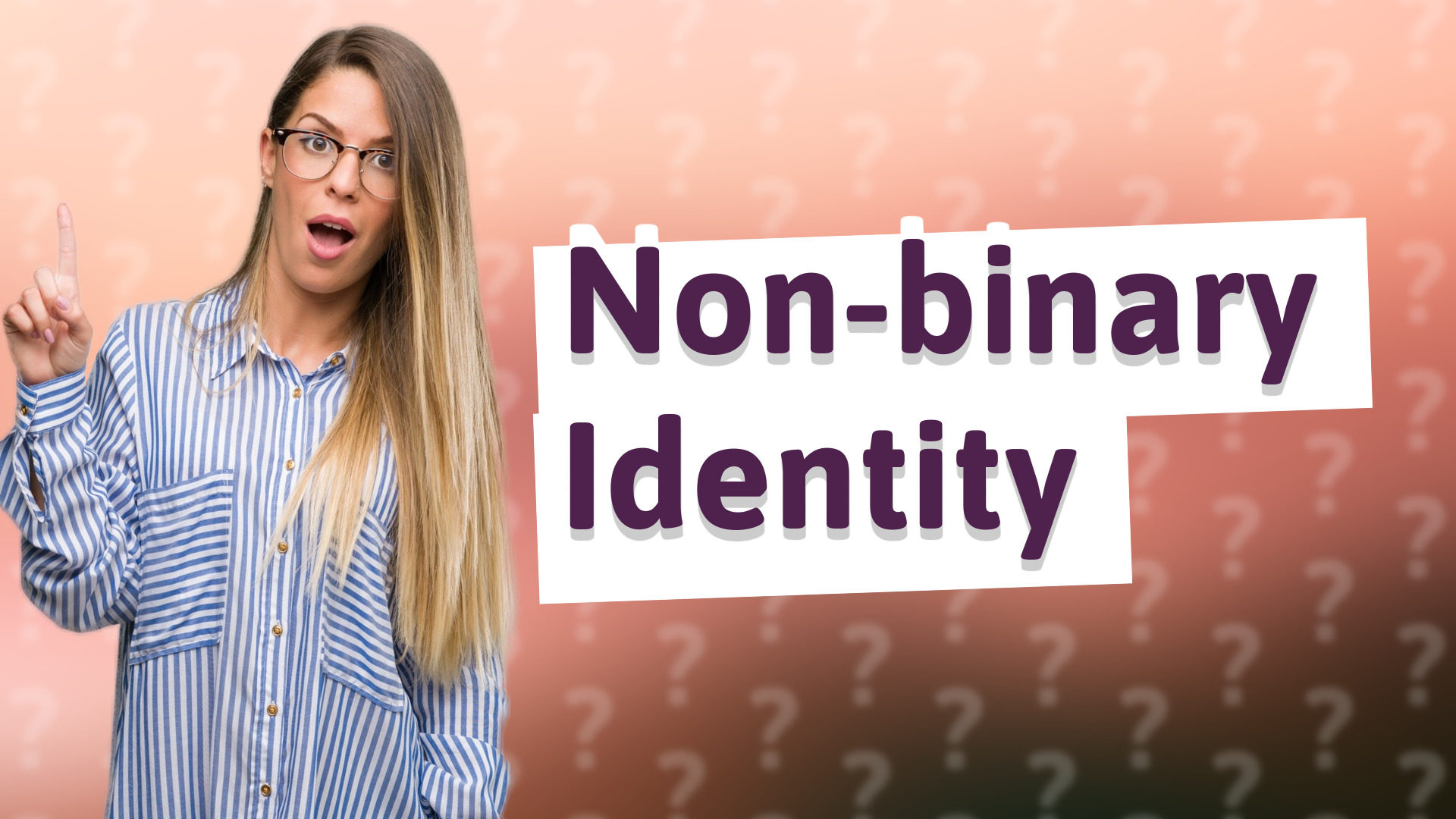
Explore what neutral gender means and how to support non-binary identities in an inclusive manner.
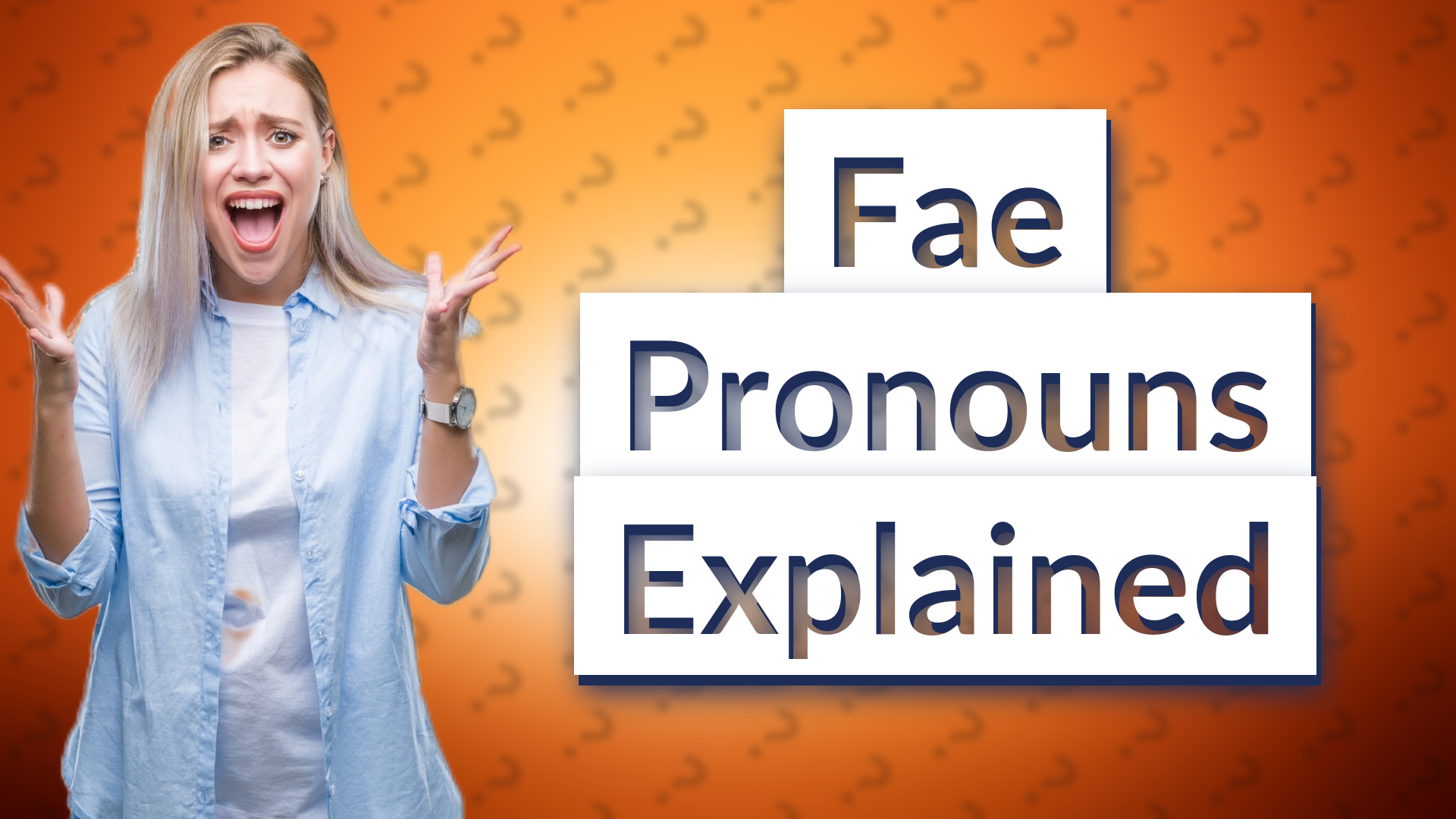
Learn about the gender-neutral pronoun 'fae', its usage, and its importance in fostering inclusivity.
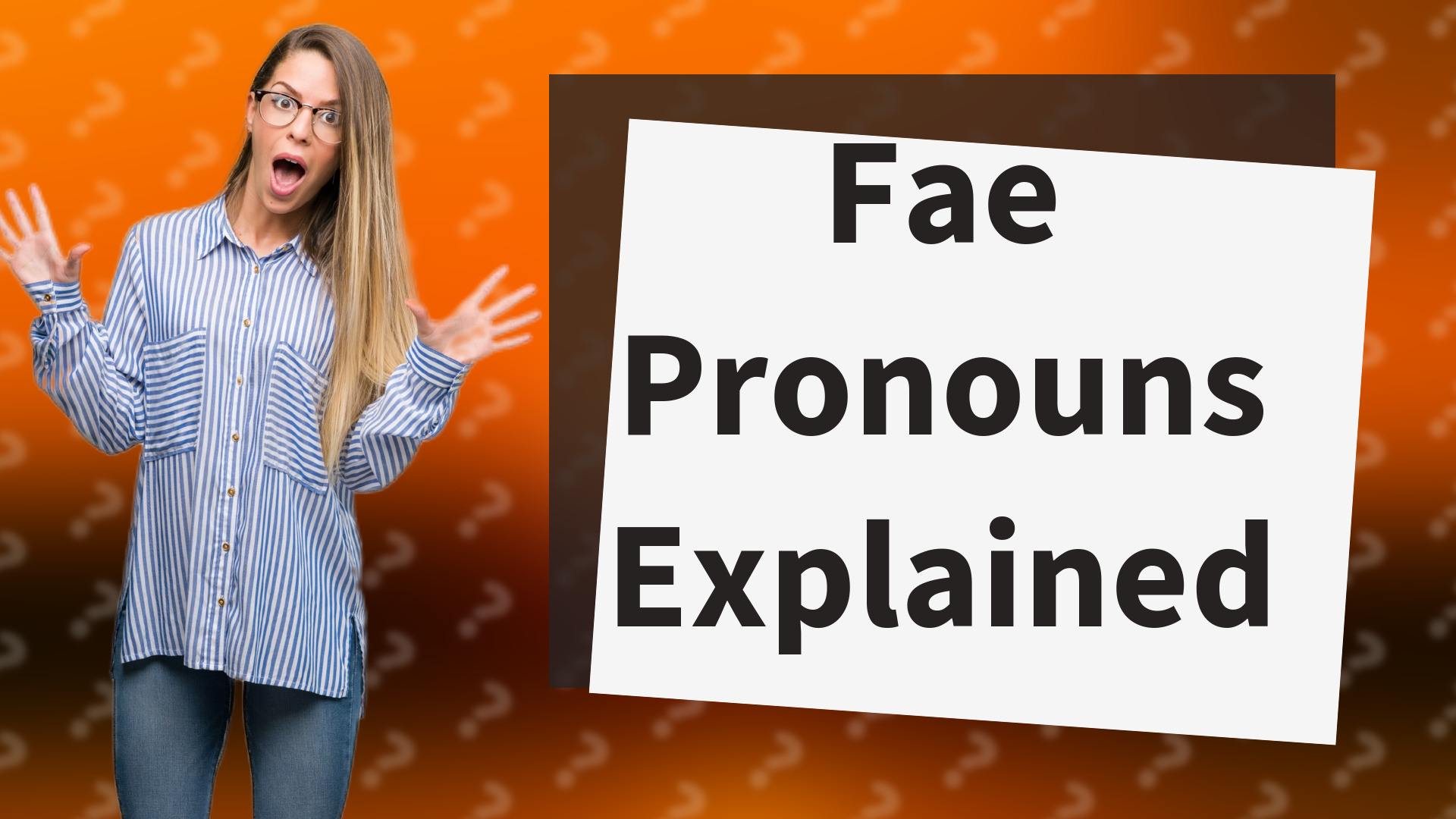
Explore fae pronouns, their significance, and how they empower gender identity expression.
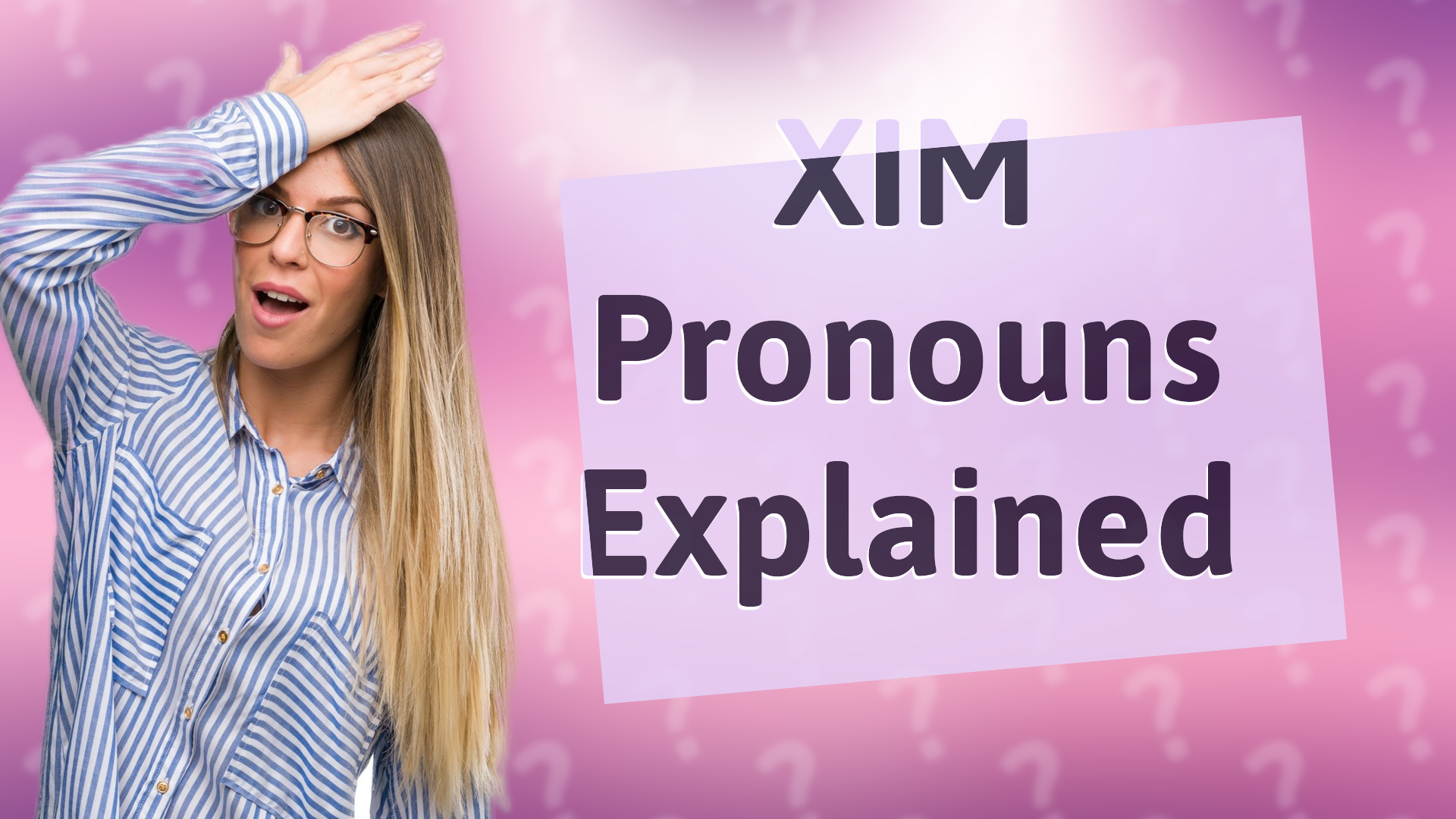
Discover what XIM pronouns are and how they promote inclusivity in communication.
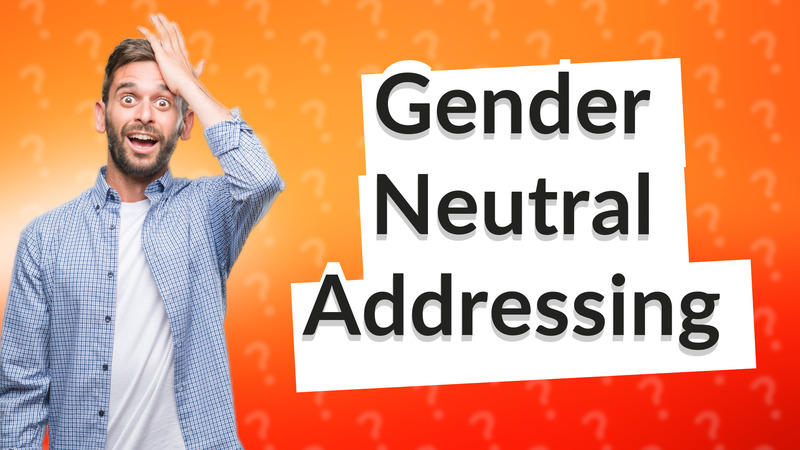
Learn how to respectfully address individuals with gender-neutral language using inclusive terms and pronouns.

Explore the meaning and usage of the gender-neutral pronoun XEM in our informative video.

Learn about Ze and Zie, inclusive gender-neutral pronouns, and their role in respecting diverse gender identities.
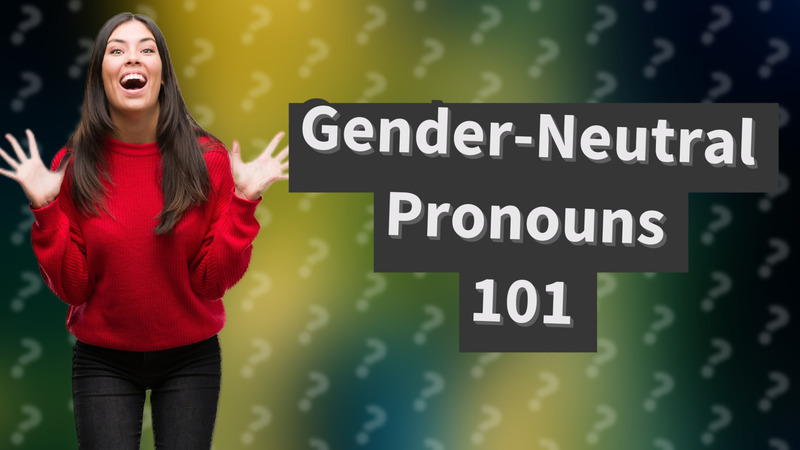
Discover what gender-neutral pronouns are and why they matter for inclusivity in language.
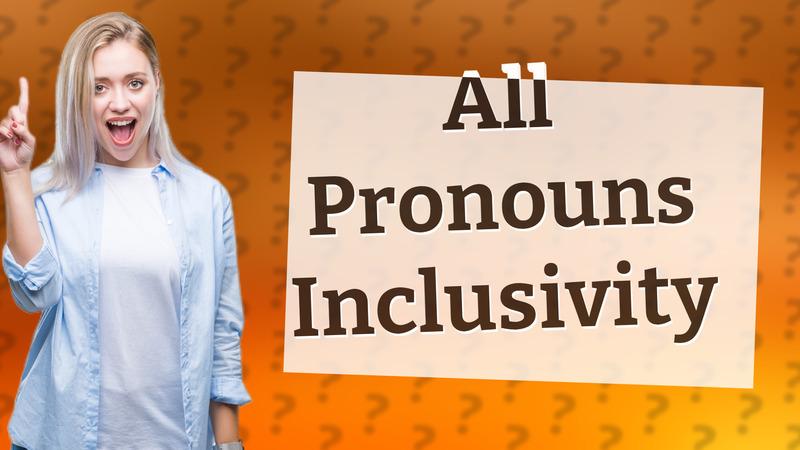
Explore the importance of using all pronouns to foster inclusivity and respect in society.
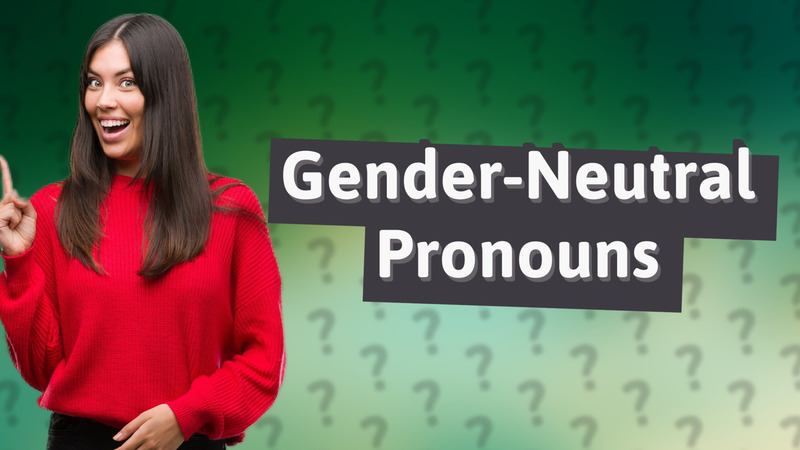
Explore the correct use of gender-neutral pronouns in modern English to promote inclusivity.

Explore gender-neutral pronouns like they/them and neo-pronouns, and learn how to respect individual identities.
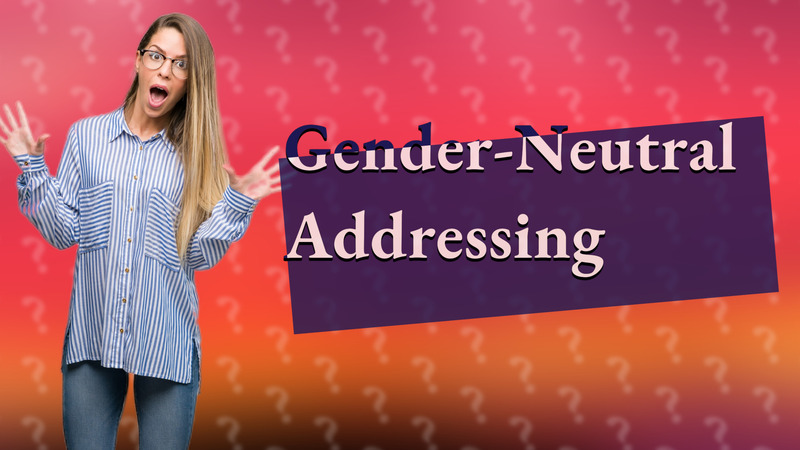
Learn the proper way to formally address gender-neutral individuals using inclusive titles and pronouns.
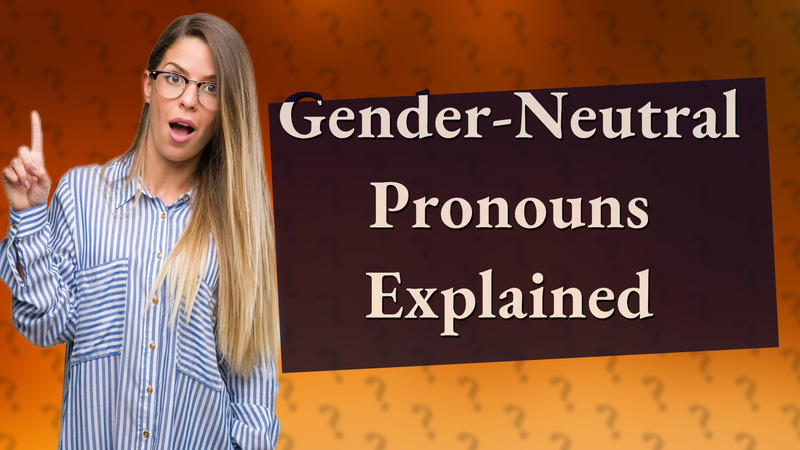
Learn about strong pronouns, their inclusivity, and examples like they/them and xe/xem. Discover their importance in respecting gender identities.

Discover the history of 'they' as a singular pronoun used since the 14th century and its relevance today.
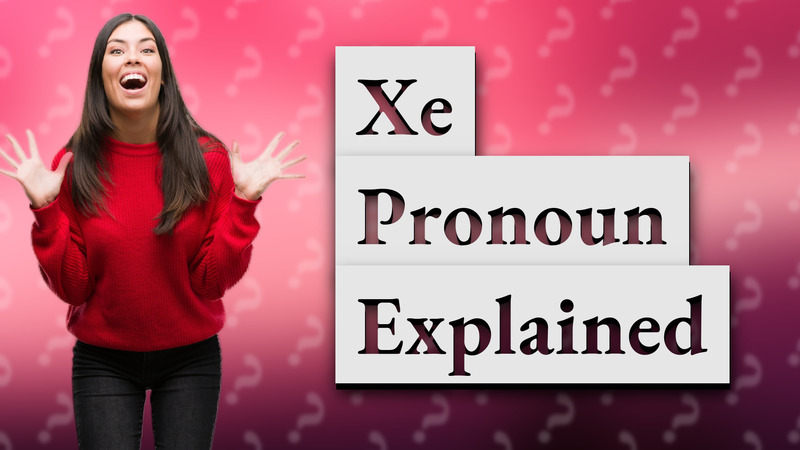
Discover what the pronoun xe means and why it’s important for gender-neutral communication.

Explore why 'they/them' is the most rated pronoun, a choice championing gender-neutrality and inclusivity.
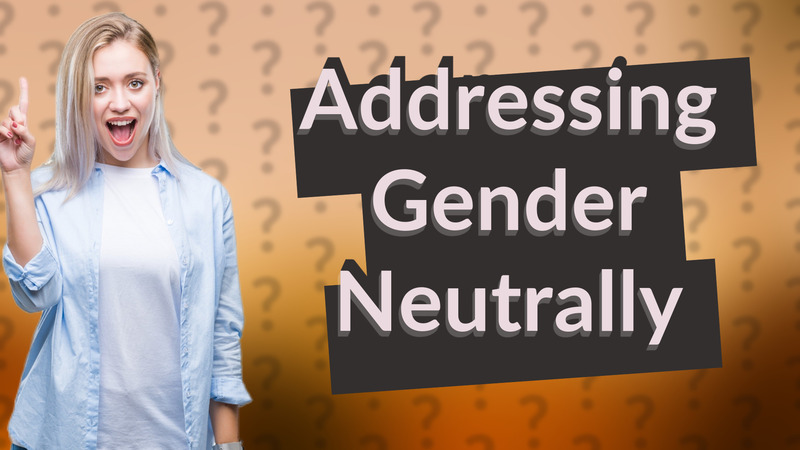
Learn how to use gender-neutral language and pronouns to promote inclusivity and respect in communication.
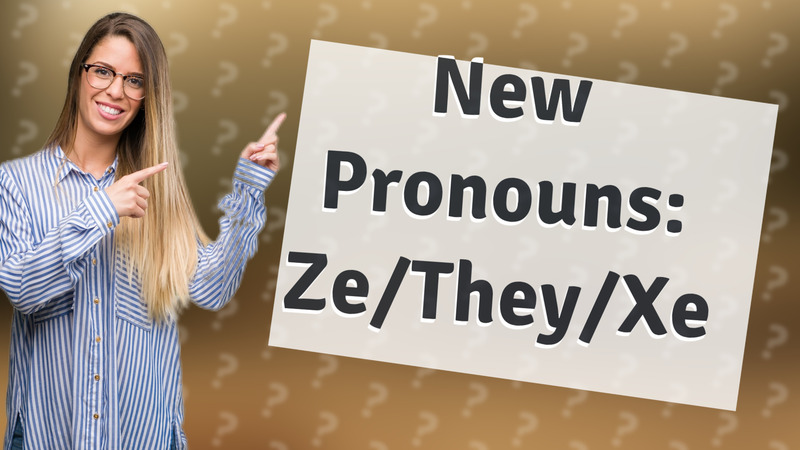
Explore new pronouns like ze/hir and they/them, fostering inclusivity and respect for diverse gender identities.
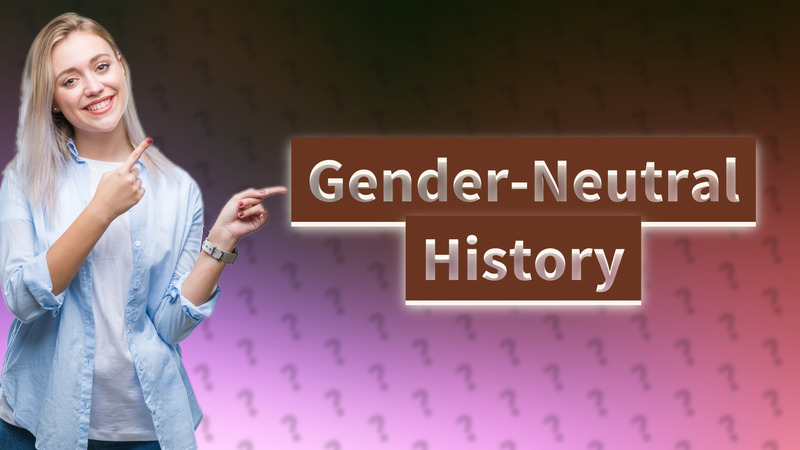
Explore the emergence of gender-neutral pronouns and their significance in today's language and identity discussions.
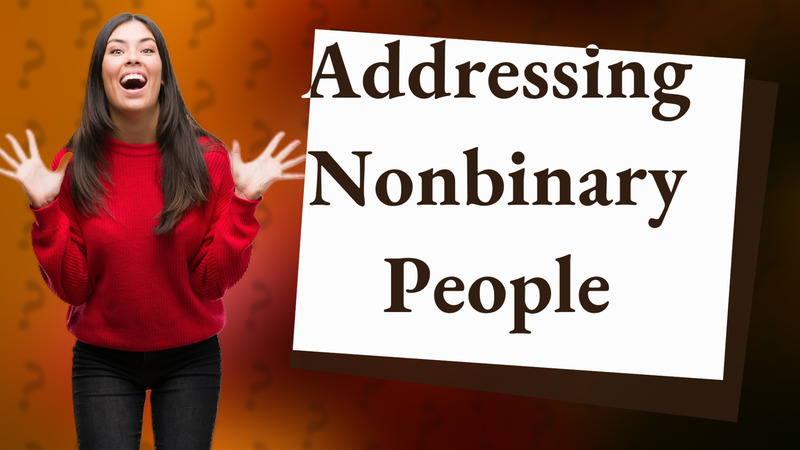
Learn the formal way to address nonbinary individuals using 'Mx.' and they/them pronouns for inclusivity.

Discover if 'ze' is acknowledged as a gender-neutral pronoun in the Oxford English Dictionary.
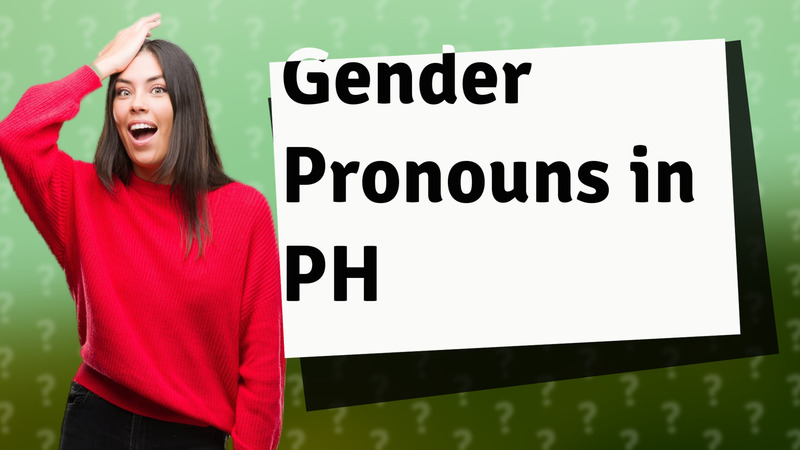
Explore the use of gender-neutral pronouns like 'siya' and 'kanya' in Filipino and their significance for inclusivity.
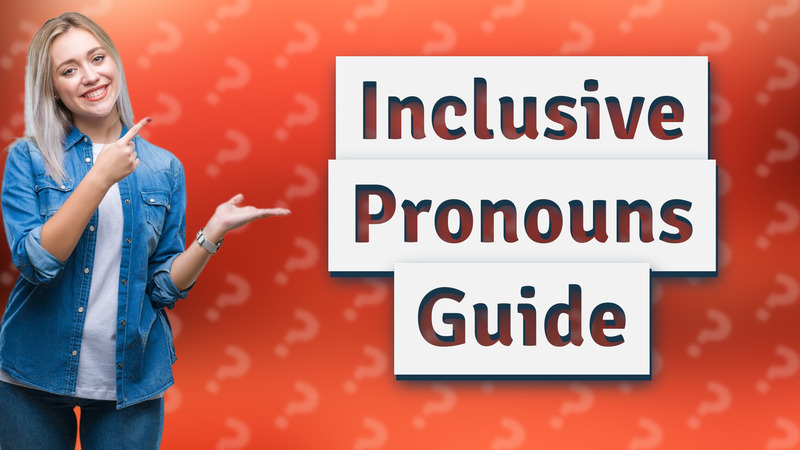
Learn how to refer to individuals of unknown gender using inclusive pronouns like they/them.

Learn about hir/hir pronouns and their role in promoting gender inclusivity.

Learn effective ways to write gender-neutral language that promotes inclusivity and respect for all identities.
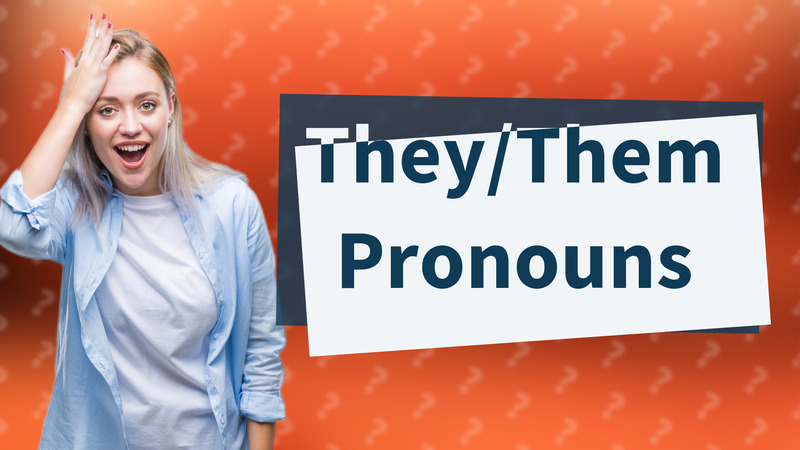
Learn why 'they/them' pronouns are used for undefined gender identities in this informative video.
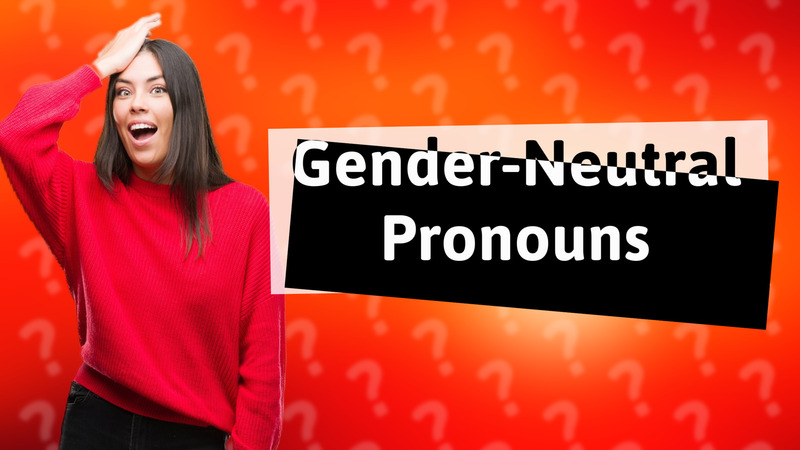
Learn how to refer to someone without knowing their gender using inclusive language and gender-neutral pronouns.

Learn about 'xemself', a gender-neutral reflexive pronoun supporting diverse identities.
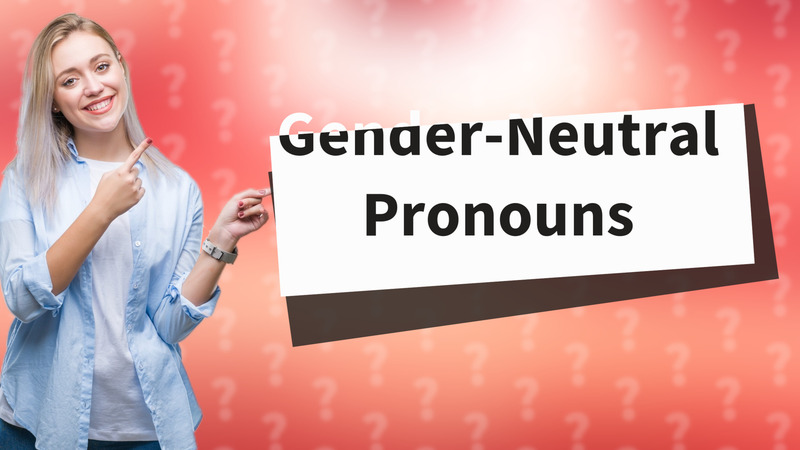
Learn about gender-neutral pronouns, including 'they' and other alternatives like 'ze/hir'.

Learn about using 'they' as a singular pronoun for individuals of unknown gender. An inclusive and grammatically correct practice.
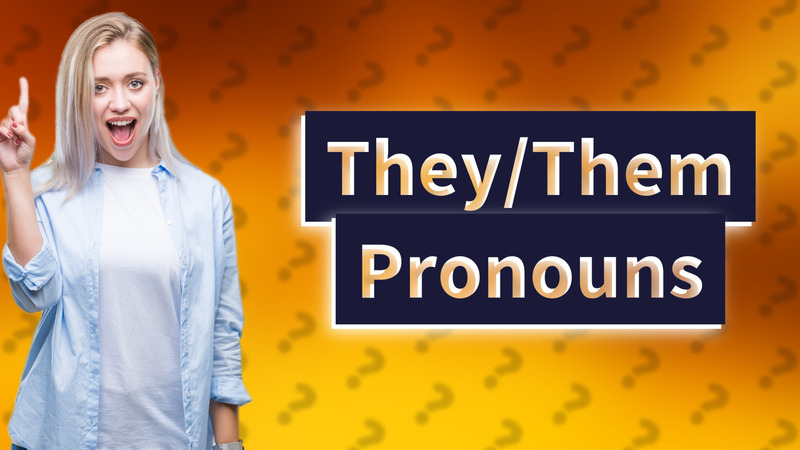
Explore how they/them pronouns serve as gender-neutral options in English.
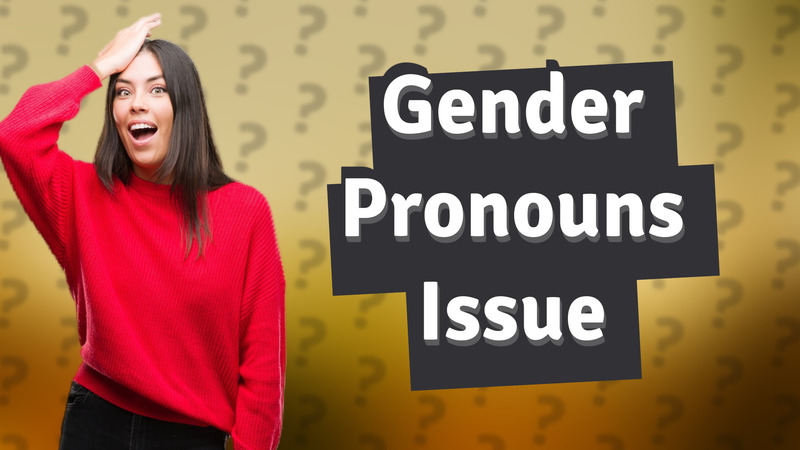
Explore the use of 'he' as a gender-neutral pronoun and discover alternatives for inclusivity.
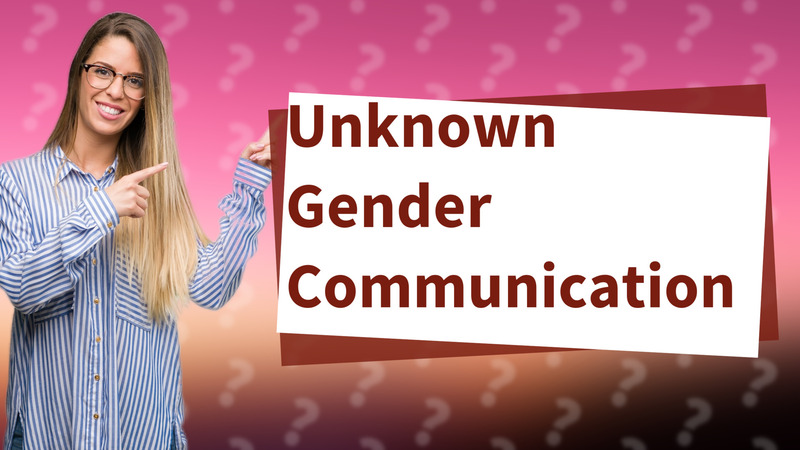
Learn how to talk about unknown gender respectfully using gender-neutral pronouns and inclusive language.

Learn about 'thon,' the oldest neopronoun, its origins, and significance in gender-neutral language.

Discover what it means to identify with zie pronouns and how it supports non-binary individuals.
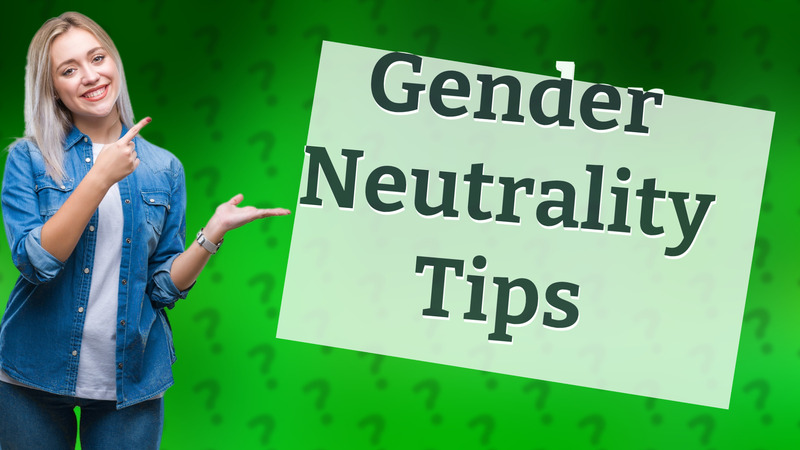
Explore neutral gender terms for inclusivity, including titles and pronouns for better communication.

Discover the history of 'they' as a singular pronoun and its significance as a gender-neutral option in modern language.
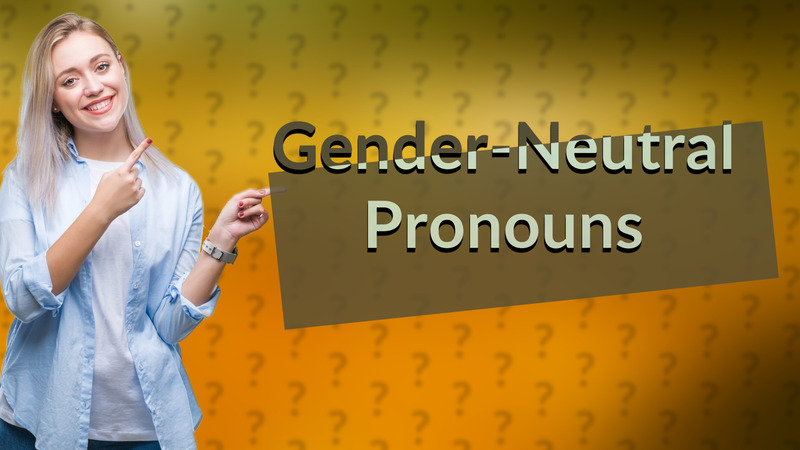
Explore why English lacks traditional gender-neutral pronouns and how 'they' is becoming the solution for inclusivity.

Discover the meaning of 'ze' in French and its role in gender-neutral language.
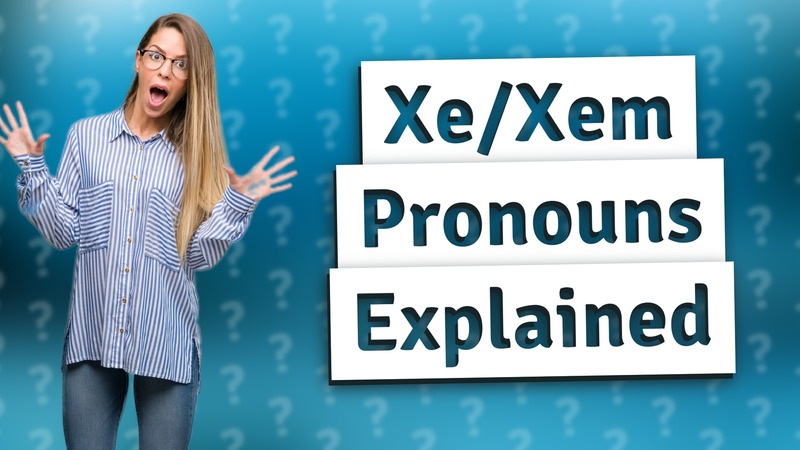
Explore the meaning and usage of xe/xem as gender-neutral pronouns in our latest discussion.

Explore the emergence of the gender-neutral pronoun 'ze' in language and its significance for inclusivity.
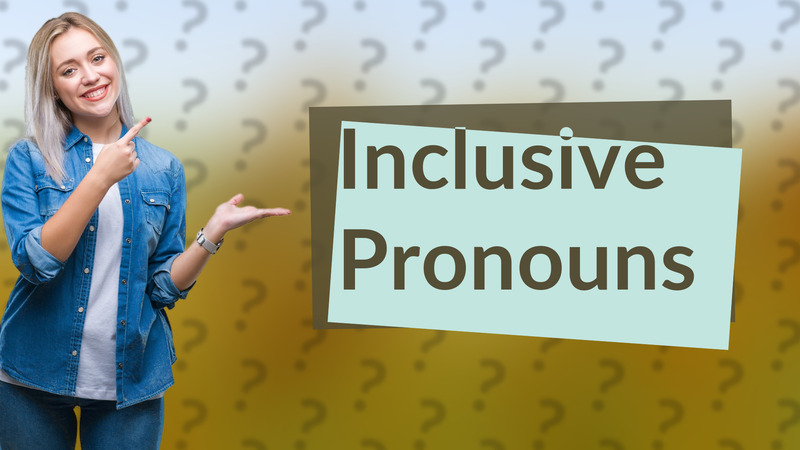
Learn about nonbinary pronouns, their importance, and how to use them respectfully in conversations.
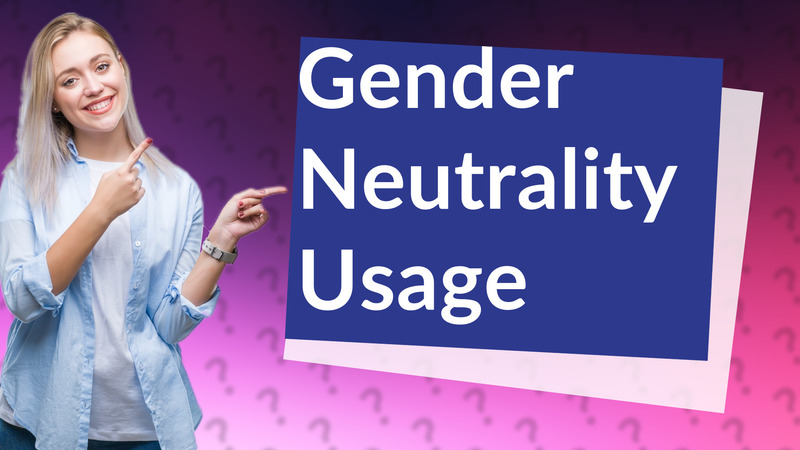
Learn how to use gender-neutral pronouns like 'they/them' for inclusive communication.
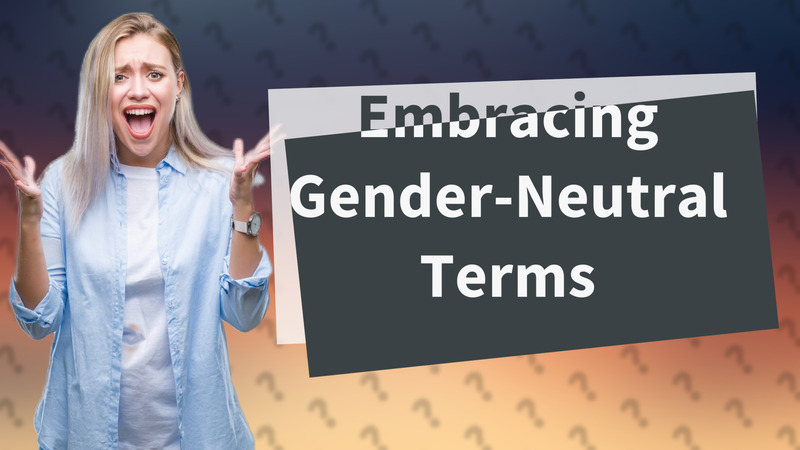
Explore common gender-neutral terms like 'they/them' and 'Mx.' in this informative video on inclusive language.
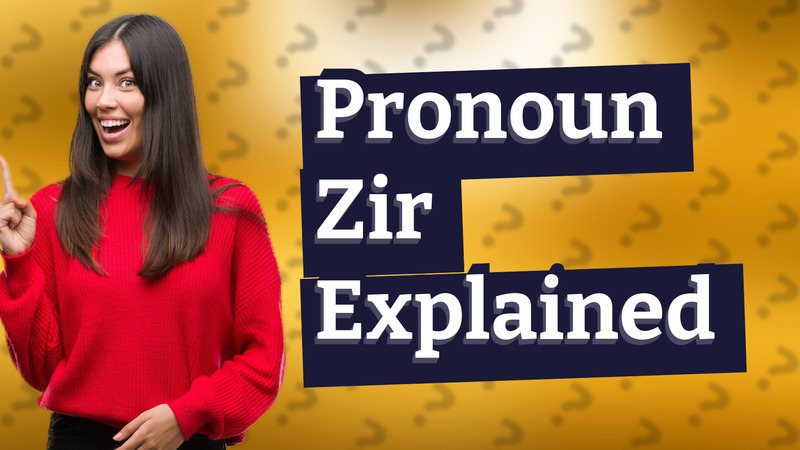
Learn about the pronoun 'zir' and its use in promoting inclusivity for non-binary individuals.

Learn respectful ways to address someone without knowing their gender using names and neutral pronouns.
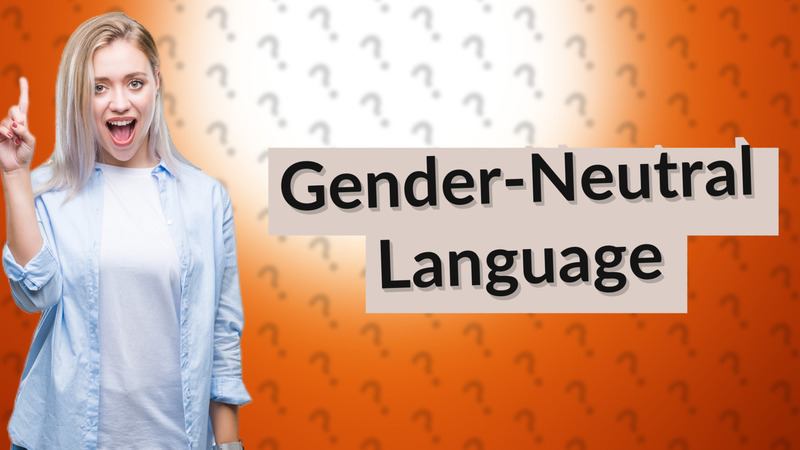
Learn about gender-neutral pronouns like 'they/them' and the title 'Mx.' for unknown gender reference.
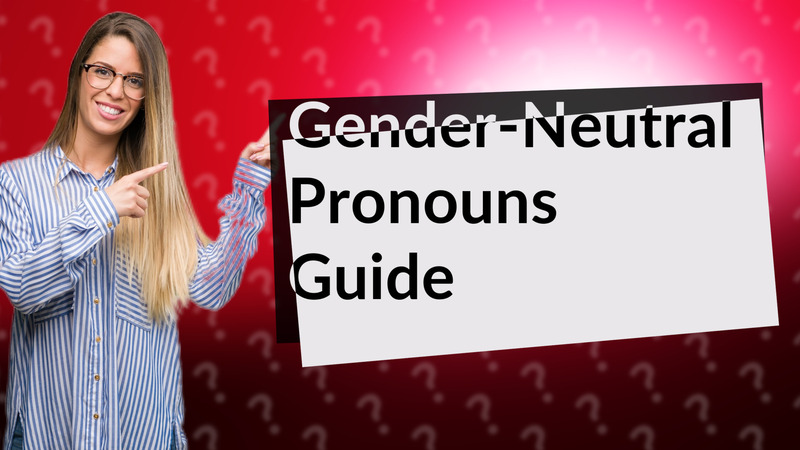
Learn how to respectfully use gender-neutral pronouns in conversations and written communication to promote inclusivity.
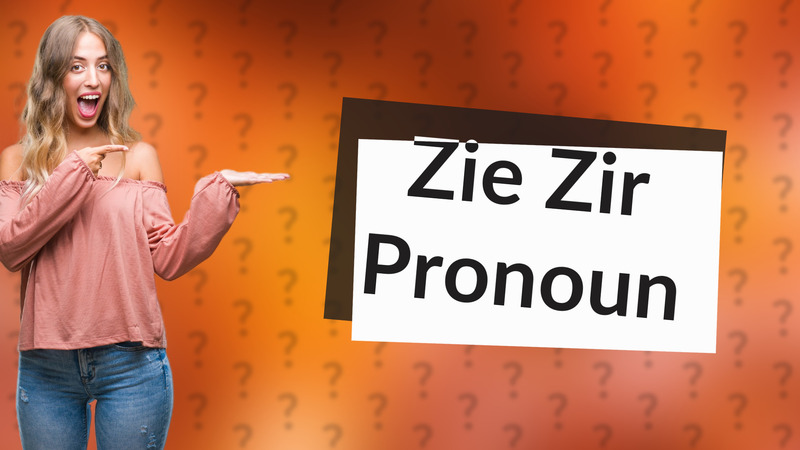
Learn about the Zie Zir pronoun, its usage, and how it respects non-binary identities.
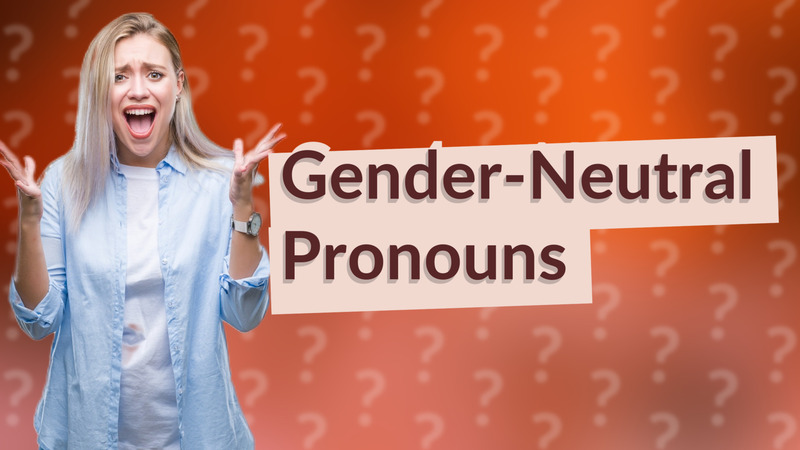
Learn about gender-neutral pronouns like 'they/them' and 'ze/hir' and how they promote inclusive language.
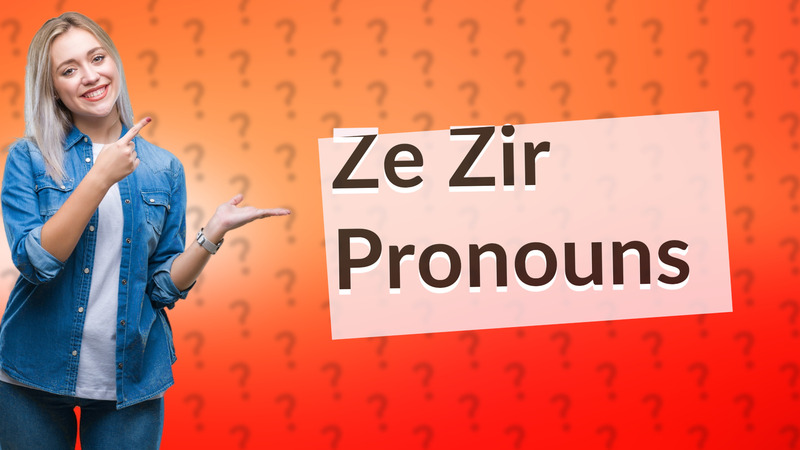
Discover the origin of Ze/Zir pronouns and how they promote gender inclusivity in language.
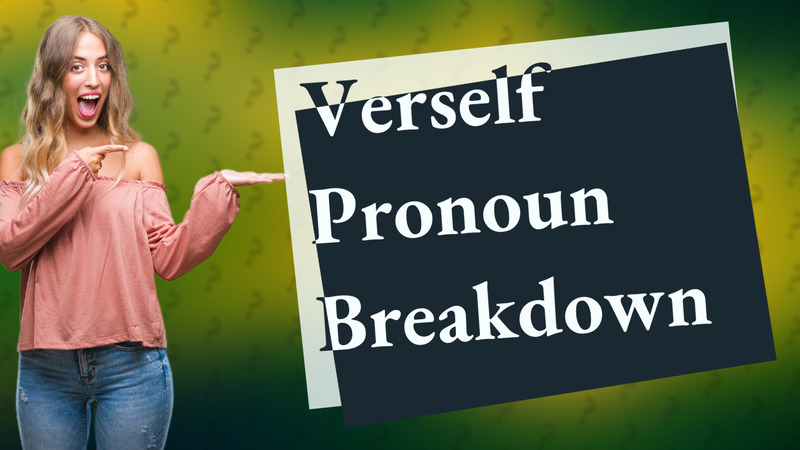
Learn about verself, a gender-neutral pronoun, and its role in promoting inclusive language.
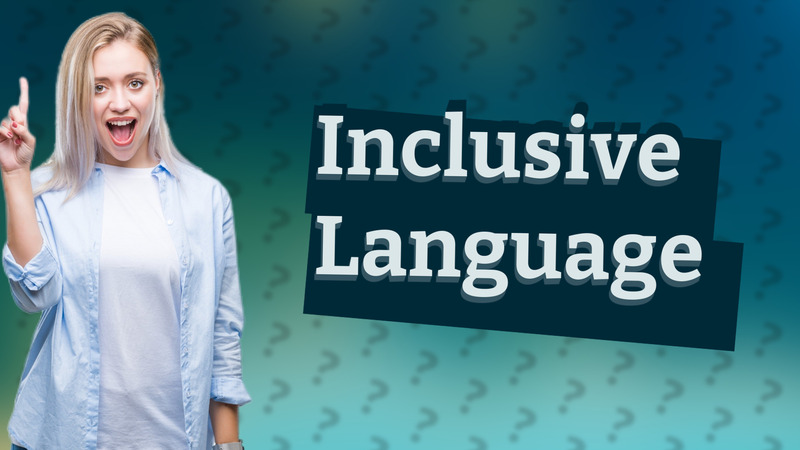
Learn how to respectfully refer to gender-neutral individuals using inclusive pronouns and titles. Discover the importance of avoiding assumptions.
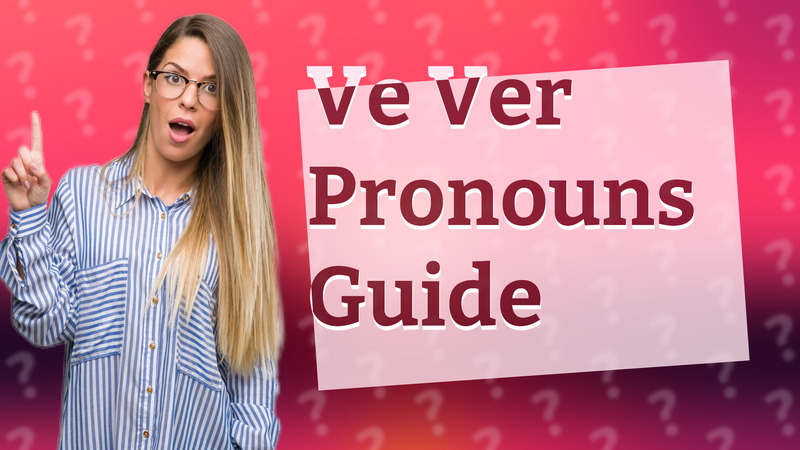
Learn about ve/ver pronouns, their usage, and how they promote inclusivity in gender identities.
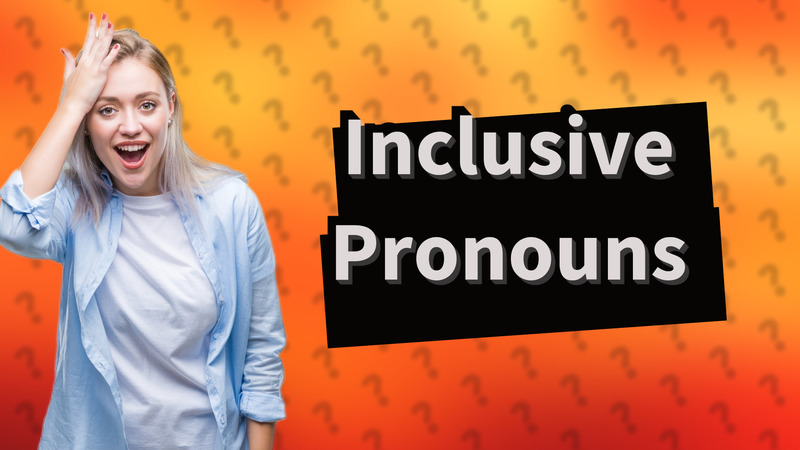
Learn how to use 'they' as a singular pronoun effectively and respectfully when gender is unknown.

Discover what Dei pronouns are and how to use them for inclusive language.

Learn how to use gender-neutral language and pronouns respectfully and inclusively.
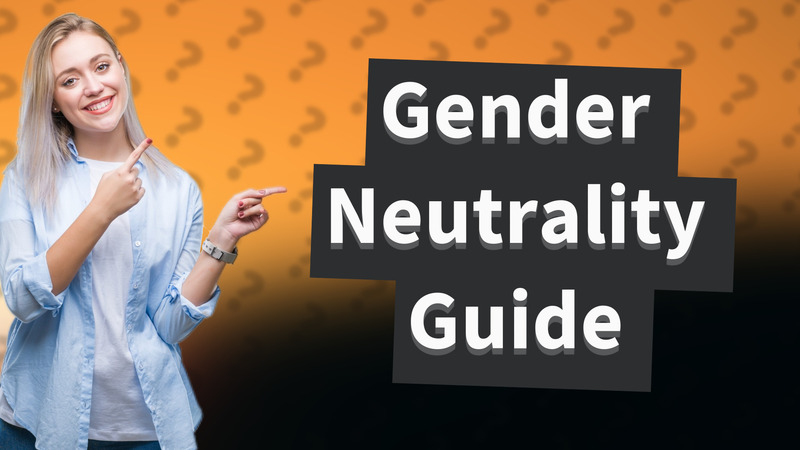
Discover how to use gender-neutral pronouns like 'they' and 'them' to promote inclusivity and respect for identity.
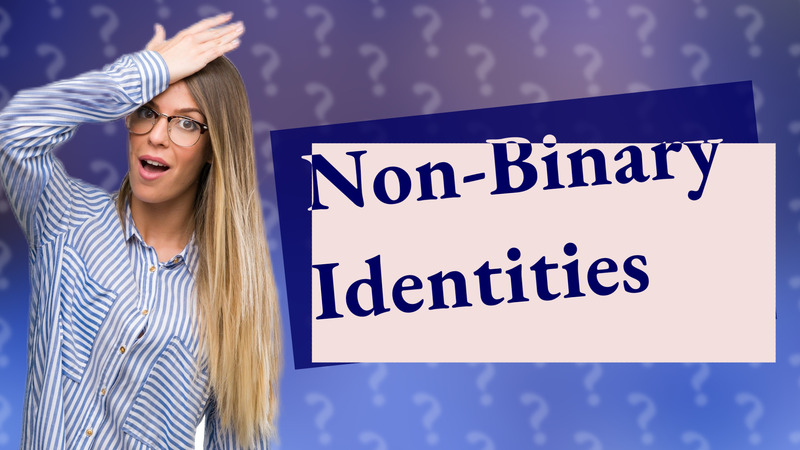
Explore non-binary identities and learn about gender neutrality in this insightful discussion.
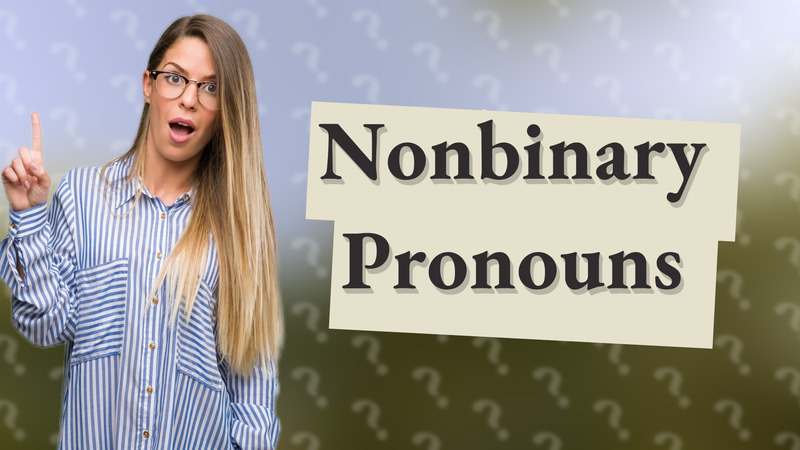
Learn about the diverse pronouns used by nonbinary individuals and how to respect their preferences.

Learn about Zed pronouns, their use, and the importance of gender-neutral language in promoting inclusivity.

Discover the history and purpose of the thon pronoun, an early attempt at gender-neutral language.
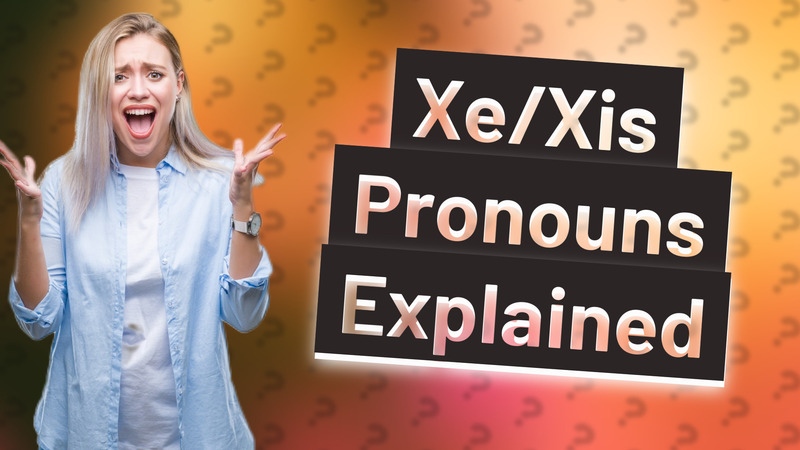
Learn about Xe/Xis pronouns, their usage, and the importance of gender-neutral language for inclusivity.

Explore the importance of ze/hir pronouns in promoting gender inclusivity and respect. Learn how to use them effectively.
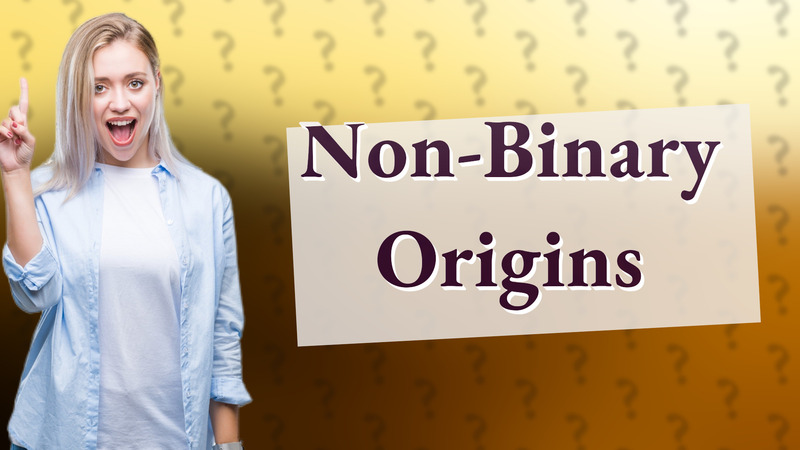
Discover the original non-binary pronouns and their significance in promoting inclusivity.
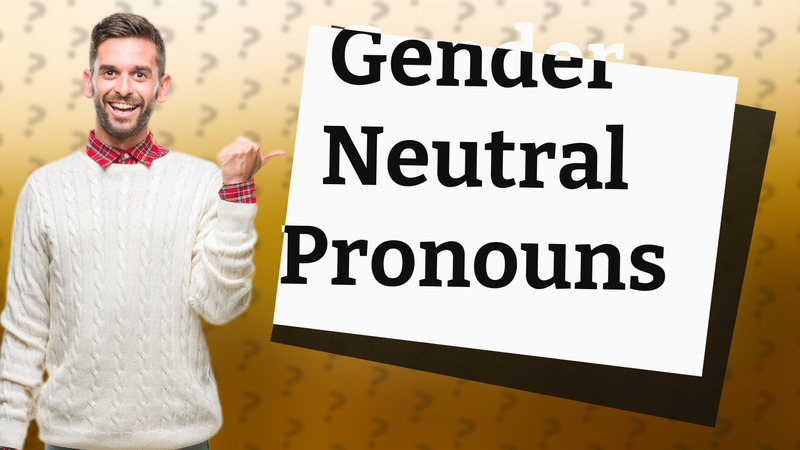
Learn the best practices for using gender-neutral language when addressing individuals whose gender is unknown.
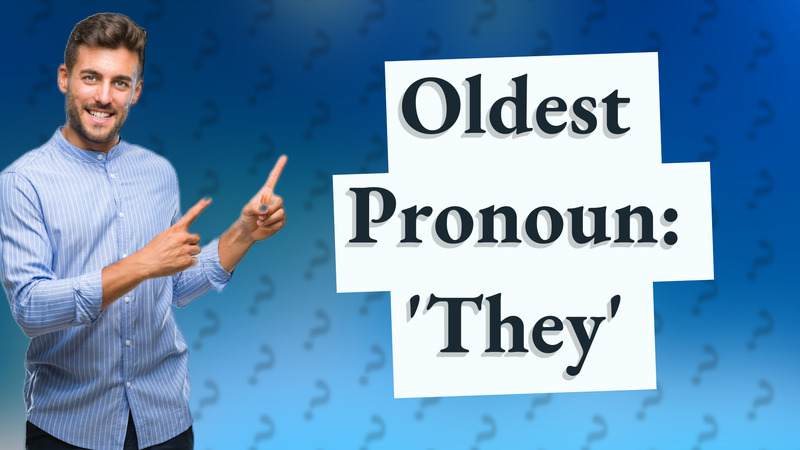
Learn about 'they', the oldest gender-neutral pronoun, used in English since the 14th century for inclusive individual reference.

Discover the safest pronoun to use and how it promotes inclusivity and respect in communication.
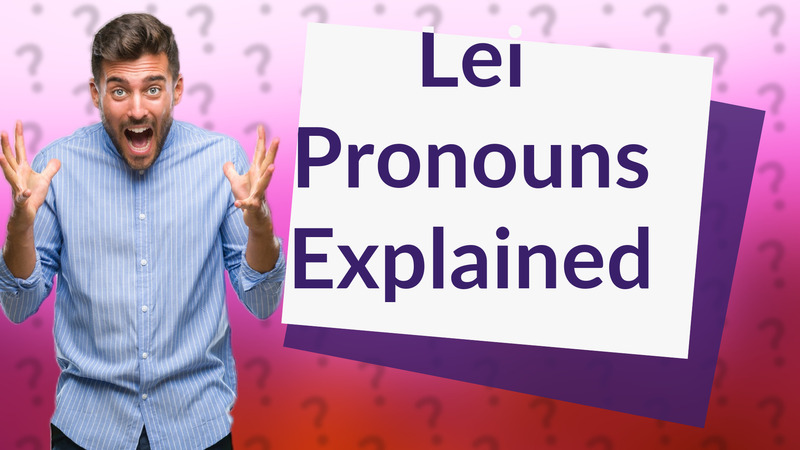
Explore the concept of lei pronouns in Italian, their usage, and significance in polite communication.
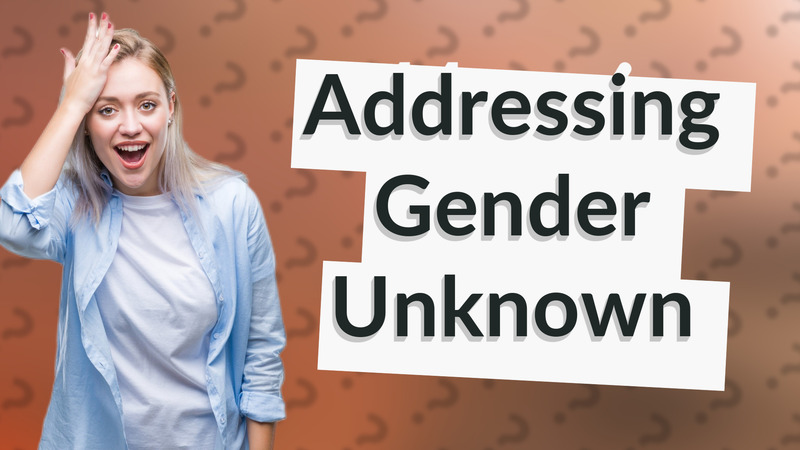
Learn effective ways to respectfully address someone whose gender is unknown with gender-neutral terms and greetings.
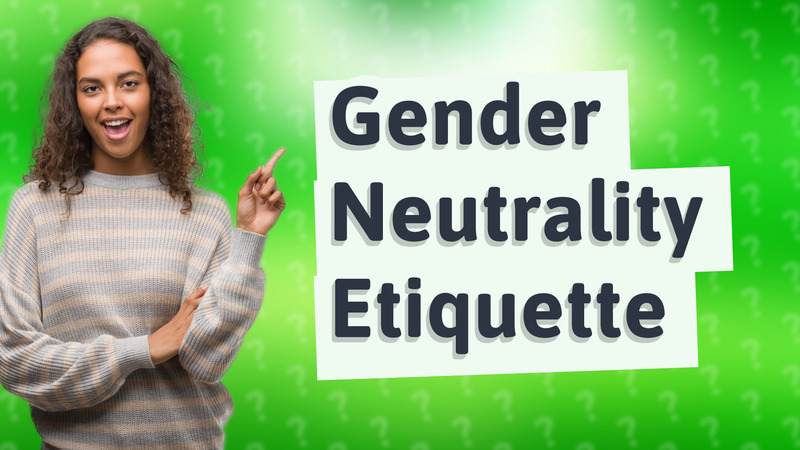
Explore how to respectfully refer to gender-neutral individuals using inclusive language and pronouns.
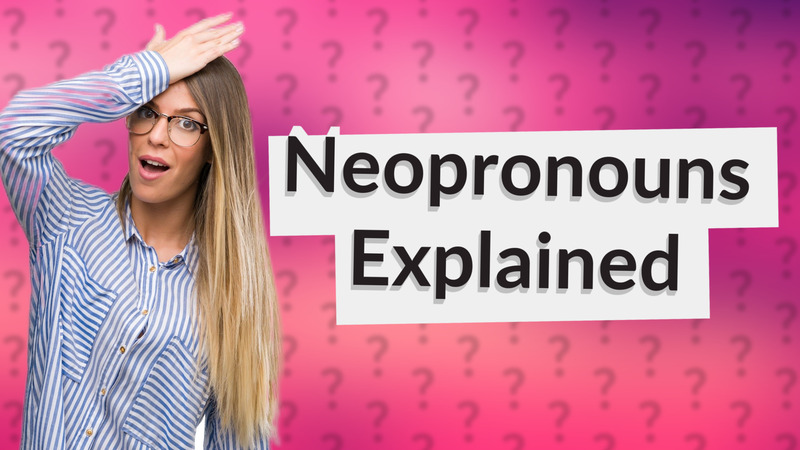
Discover neopronouns and their role in promoting inclusivity and respect for diverse gender identities.
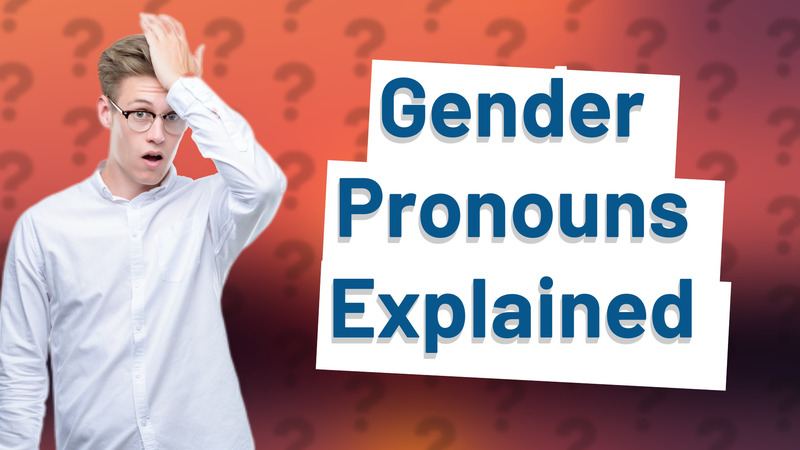
Explore what unidentified gender pronouns are and their role in promoting inclusivity.
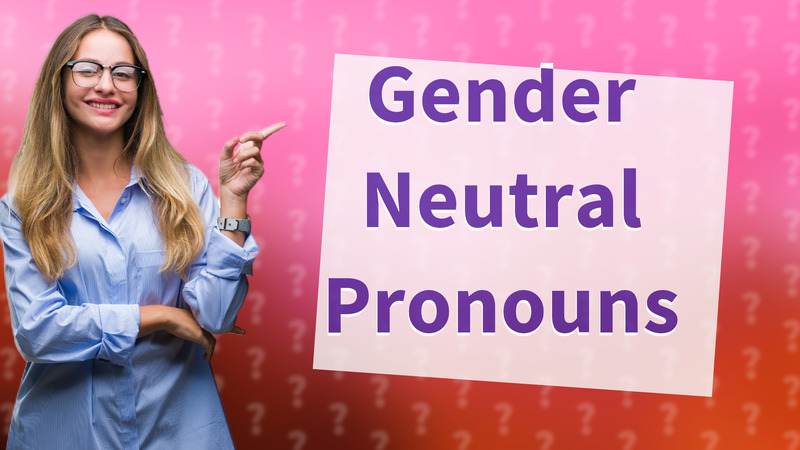
Explore the use of 'they' as a gender-neutral pronoun that promotes inclusivity and avoids gender assumptions.
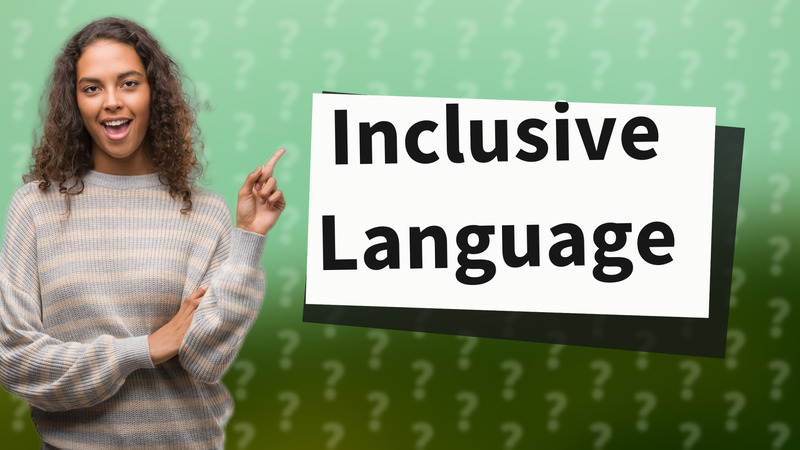
Discover how to say 'you guys' in a gender-neutral way with inclusive language options like 'everyone' and 'team'.
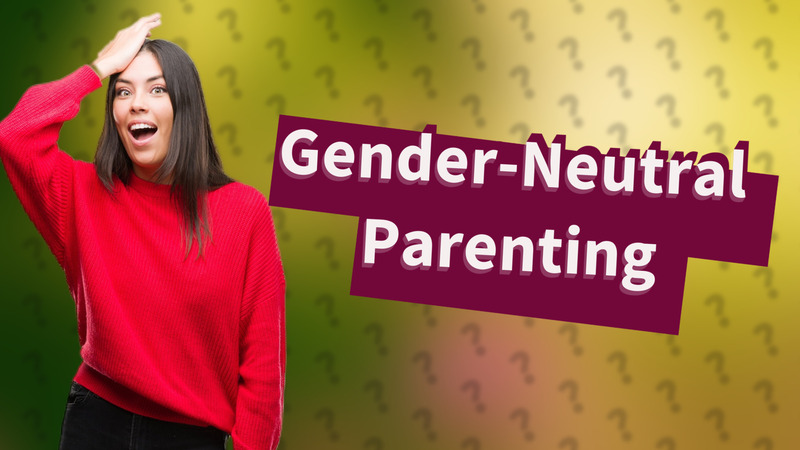
Learn effective strategies for addressing children without gender assumptions using neutral pronouns.

Learn about the gender-neutral pronoun 'zir' and its importance in promoting inclusivity.
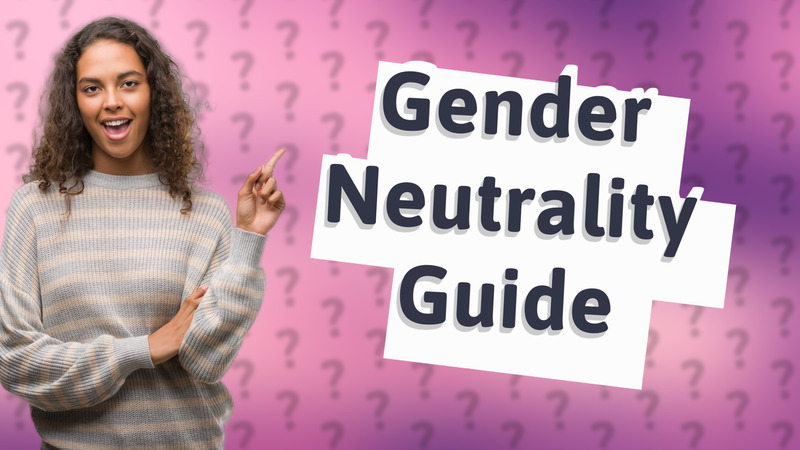
Discover how to use gender-neutral language and terms to address someone respectfully when their gender is unknown.
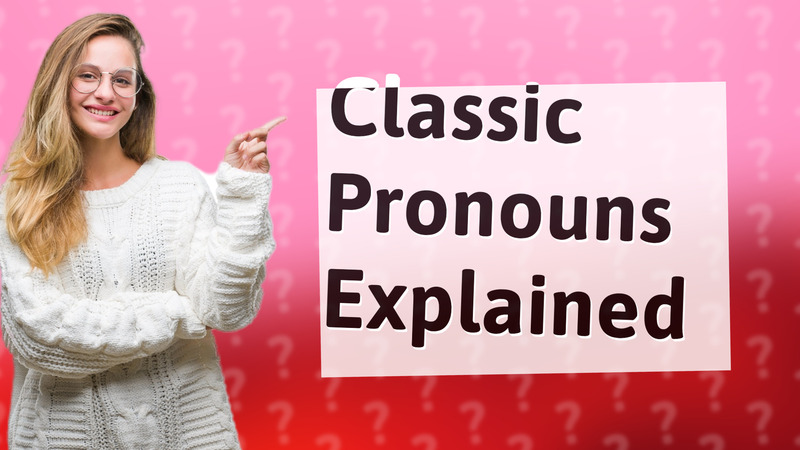
Explore the traditional categories of classical pronouns such as he, she, and they in this informative video.
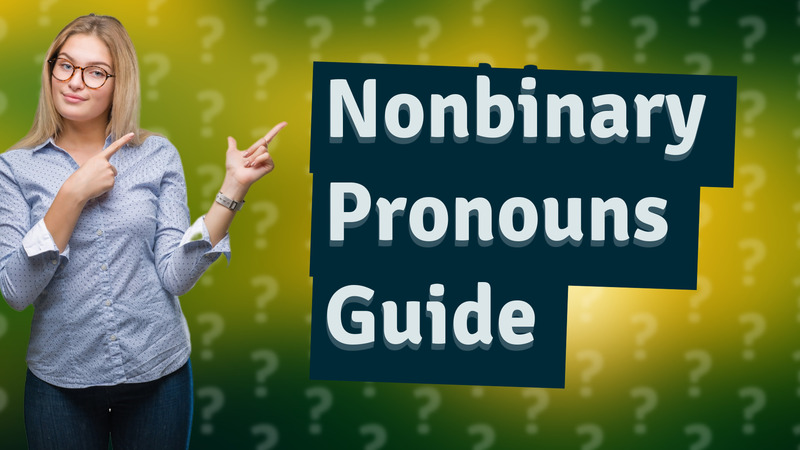
Learn the correct pronouns for nonbinary individuals and understand the importance of asking for preferences.
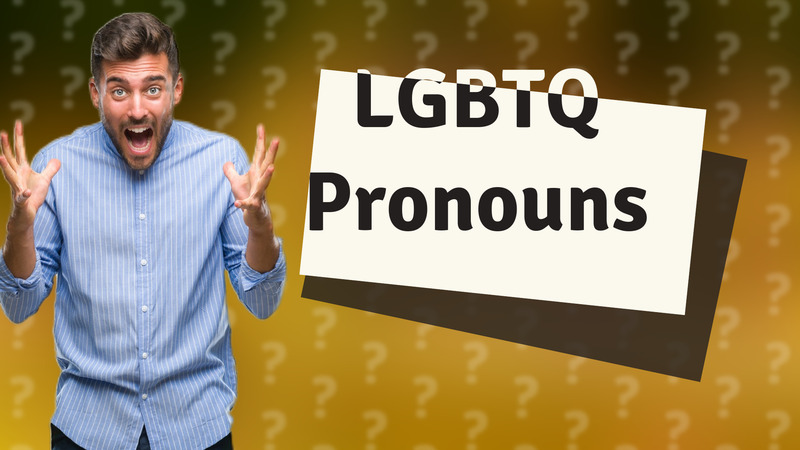
Explore the diverse pronouns used in the LGBTQ community in Canada and the importance of respect and inclusivity.